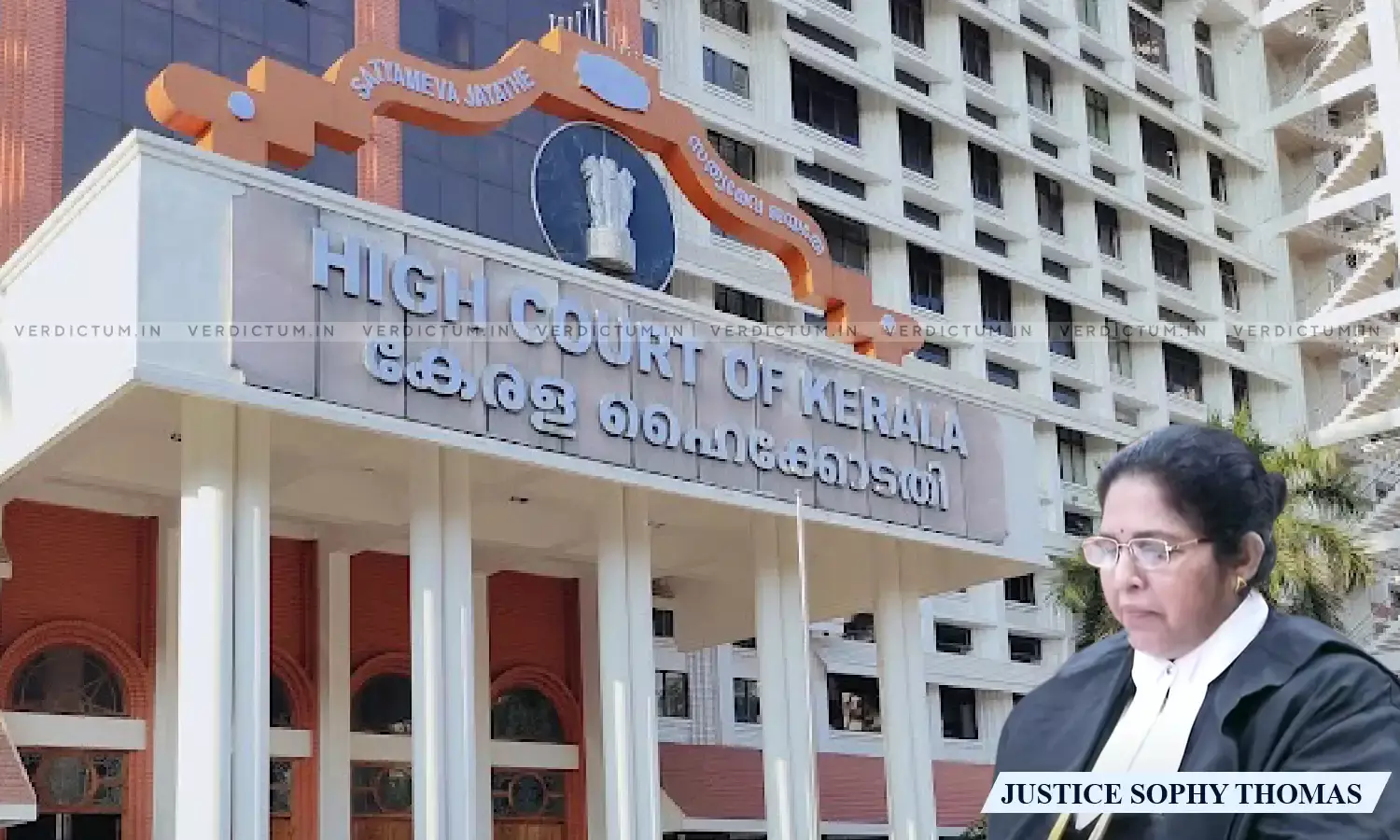Even If Car Driver Is Intoxicated Violating Policy’s T&C, Insurance Company Liable To Initially Compensate 3rd Party: Kerala HC

The Kerala High Court held that even if the driver of the car is in an intoxicated condition and violating the terms and conditions of the Policy, still the Insurance Company is liable for an initial payment of compensation to the third party.
The Court said that the insurance company must pay the third party and get the money reimbursed from the driver and the owner.
A Single Bench of Justice Sophy Thomas observed, “Even if, there is a condition in the Policy Certificate that driving of a vehicle in an intoxicated condition is violation of the terms and conditions of the Policy, still the Insurance Company is liable for payment of compensation. Undoubtedly, when the driver is in an inebriated state, certainly, his consciousness and senses will be impaired so as to render him unfit to drive a vehicle. But the liability under the Policy is statutory in nature and so the Company is not liable to be exonerated from payment of compensation to the victim.”
The Bench further relied upon the case of Bajaj Allianz General Insurance Co.Ltd., rep by its Deputy Manager (Legal) vs. Manju Devi and Others [2014 SCC OnLine AP 232] in which it was held that the Insurance Company cannot avoid its liability totally on account of drunken driving of the driver, as it is not a ground to exonerate the Insurance Company from payment of compensation as far as third parties are concerned; as the policy is statutory in nature.
Advocare Sri.T.G.Rajendran appeared for the appellant while Advocate Abhijett Lessli appeared for the Insurance Company.
Brief Facts –
The appellant while travelling in an autorickshaw, met with a road traffic accident and the car was driven by the respondent, in a rash and negligent manner, dashed against the autorickshaw. He was thrown out to the road and sustained serious injuries due to which he was admitted and treated for seven days at the hospital.
Even after discharge, he had to take rest for six months. He was a driver by profession earning a monthly income of Rs.12,000/-. Though he approached the Tribunal claiming compensation of Rs.4,00,000/-, the Tribunal awarded only Rs.2,40,000/-, against which he preferred the appeal before the High Court.
The High Court noted, “… the Insurance policy stipulates the condition that the Insurance Company shall not be liable to make any payment in respect of any accidental loss or damage suffered whilst the insured or any person driving the vehicle with the knowledge and consent of the insured is under the influence of intoxicating liquor or drugs. Since the offending vehicle was validly insured with the 3 rd respondent-Insurance Company and the appellant/claimant is a third party, the Company is liable to compensate him initially; but the Company is eligible to recover the same from respondents 1 and 2.”
The Court further noted that as far as a third party is concerned, the Insurance Policy regarding liability to pay compensation is enforceable, as he is not supposed to know about the intoxicated state of the driver.
“… the violation of Policy conditions will not exonerate the Insurance Company from payment of compensation to third parties, though the car was driven by the driver in a drunken state. … The 2nd respondent owner permitted the 1 st respondent driver to drive the vehicle in a drunken state and so, he is also vicariously liable for the act of the 1st respondent”, the Court observed.
The Court directed the Insurance Company to deposit the enhanced compensation of Rs.39,000/- in the bank account of the appellant with interest at the rate of 7% per annum from the date of petition till the date of deposit, within a period of two months.
“The deposit must be in terms of the directives issued by this Court in Circular No.3 of 2019 dated 06/09/2019 and clarified in O.M.No.D1/62475 /2016 dated 07/11/2019 after deducting the liabilities, if any, of the appellant towards Tax, balance court fee and legal benefit fund. The 3 rd respondent can recover the amount so deposited from respondents 1 and 2 and their assets”, the Court further directed.
Accordingly, the Court allowed the appeal.
Cause Title- Muhammed Rashid @ Rashid v. Girivasan E.K. & Ors.
Click here to read/download the Judgment


